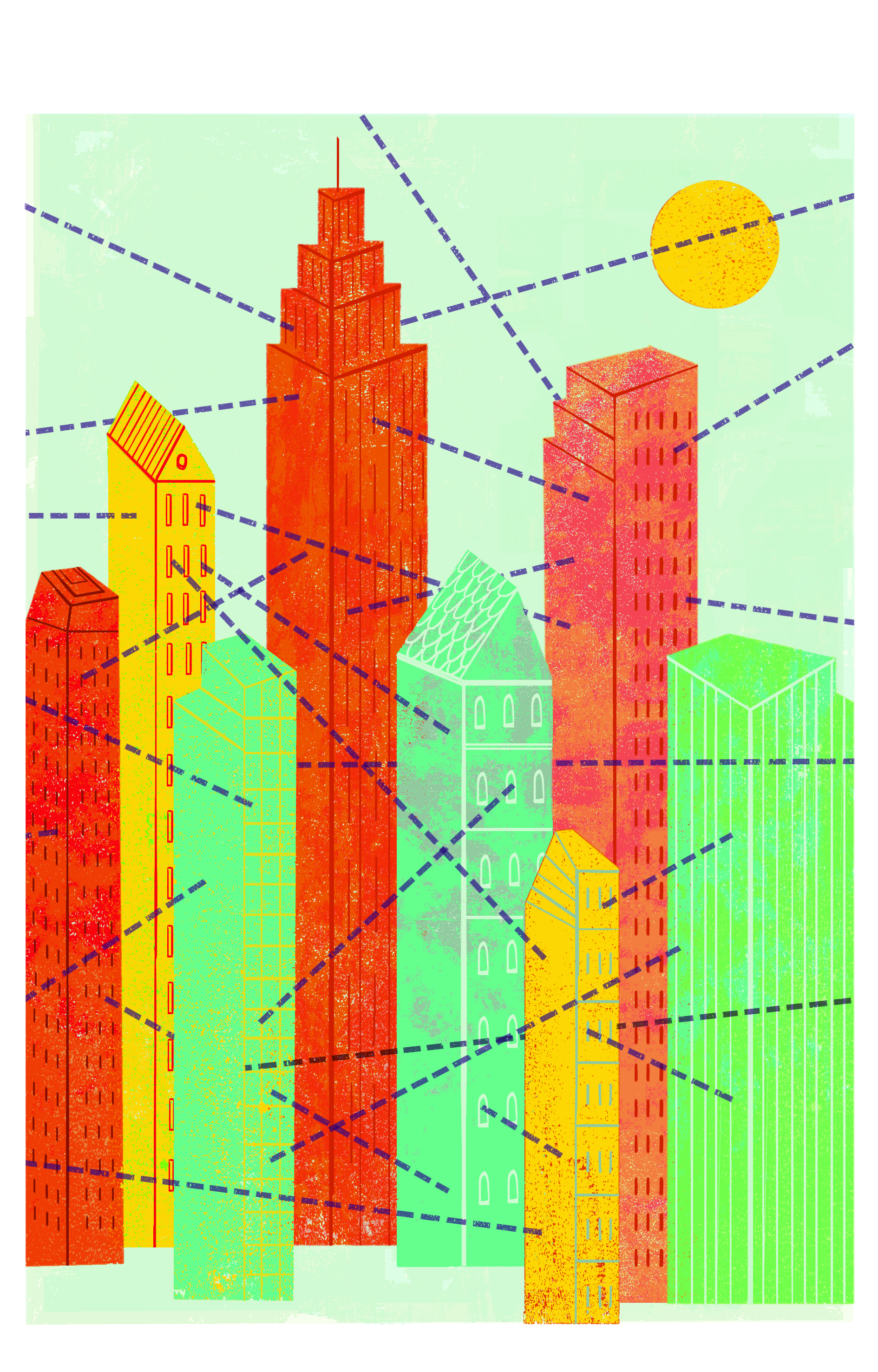DOWNLOAD
3 min read
Smart Cities – Turning challenge into opportunity
Business opportunities in a rising market

The 100 largest cities in the world produce 25% of the planet’s wealth. To succeed, more and more cities are going “Smart” in order to meet their biggest challenges and enrich the quality of their citizens’ lives. This unstoppable trend is driving double-digit growth in a trillion-dollar global market. What are the opportunities for telecom companies, utilities, financial institutions, transportation companies, software developers, equipment manufacturers and others in the smart-city market?
More and more cities are going ‘Smart’ as a response to some of the world’s biggest challenges. The best cities put their citizens at the center of their strategies, enriching the quality of their lives. This unstoppable trend is driving double-digit growth in a trillion-dollar global market that offers huge opportunities for telecom companies, utilities, financial institutions, transportation companies, software developers, equipment manufacturers and others. In this article we take a brief look at some of these opportunities for companies.
The challenges facing cities
Cities are the lifeblood of the 21st century – more than half of us live in them, and the 100 largest cities produce 25% of the planet’s wealth1. The uncontrolled and exponential growth of metropolises around the world has led to developments that put mega-cities at risk and turn them into places that, at best, can be difficult to live in and, at worst, could severely limit the world’s future social and economic viability. Key challenges include the following:
- Population density – in 1990 the world had 10 “mega-cities” (those with 10 million inhabitants, equivalent to the population of Greece); today the number stands at 28, and by 2030 the world is projected to have 412. Population growth puts a strain on infrastructure, leading to traffic congestion, delays, inefficiencies and a lack of affordable housing.
- Pollution – Eighty percent of the world’s cities with more than 100,000 inhabitants do not meet WHO air-quality guidelines. The release of greenhouse gases not only damages our environment, but also induces illness and causes more than 3 million premature deaths worldwide every year.
- Urban health – studies have found that urban dwellers are subject to higher stress levels, less healthy diets and have a lack of greenery and physical activity. This makes them more vulnerable to obesity, diabetes, depression, arthritis, heart diseases and cancer.
- Security issues – Cities are associated with higher crime levels due to the higher concentration of valuable items they contain, as well as the ease of anonymity. Law enforcement has so far been relatively successful at reducing the number of crimes. However, new threats are emerging, such as identity theft through Wi-Fi hotspots or portable contactless card scanners used by thieves on underground railways.
- Growing need for connectivity and mobility – Growing cities fuel an increasing demand for continuous connectivity and enhanced mobility, without which cities could grind to a halt. New technologies in sensors and monitoring offer possibilities to manage city operations much more effectively.

3 min read
Smart Cities – Turning challenge into opportunity
Business opportunities in a rising market


The 100 largest cities in the world produce 25% of the planet’s wealth. To succeed, more and more cities are going “Smart” in order to meet their biggest challenges and enrich the quality of their citizens’ lives. This unstoppable trend is driving double-digit growth in a trillion-dollar global market. What are the opportunities for telecom companies, utilities, financial institutions, transportation companies, software developers, equipment manufacturers and others in the smart-city market?
More and more cities are going ‘Smart’ as a response to some of the world’s biggest challenges. The best cities put their citizens at the center of their strategies, enriching the quality of their lives. This unstoppable trend is driving double-digit growth in a trillion-dollar global market that offers huge opportunities for telecom companies, utilities, financial institutions, transportation companies, software developers, equipment manufacturers and others. In this article we take a brief look at some of these opportunities for companies.
The challenges facing cities
Cities are the lifeblood of the 21st century – more than half of us live in them, and the 100 largest cities produce 25% of the planet’s wealth1. The uncontrolled and exponential growth of metropolises around the world has led to developments that put mega-cities at risk and turn them into places that, at best, can be difficult to live in and, at worst, could severely limit the world’s future social and economic viability. Key challenges include the following:
- Population density – in 1990 the world had 10 “mega-cities” (those with 10 million inhabitants, equivalent to the population of Greece); today the number stands at 28, and by 2030 the world is projected to have 412. Population growth puts a strain on infrastructure, leading to traffic congestion, delays, inefficiencies and a lack of affordable housing.
- Pollution – Eighty percent of the world’s cities with more than 100,000 inhabitants do not meet WHO air-quality guidelines. The release of greenhouse gases not only damages our environment, but also induces illness and causes more than 3 million premature deaths worldwide every year.
- Urban health – studies have found that urban dwellers are subject to higher stress levels, less healthy diets and have a lack of greenery and physical activity. This makes them more vulnerable to obesity, diabetes, depression, arthritis, heart diseases and cancer.
- Security issues – Cities are associated with higher crime levels due to the higher concentration of valuable items they contain, as well as the ease of anonymity. Law enforcement has so far been relatively successful at reducing the number of crimes. However, new threats are emerging, such as identity theft through Wi-Fi hotspots or portable contactless card scanners used by thieves on underground railways.
- Growing need for connectivity and mobility – Growing cities fuel an increasing demand for continuous connectivity and enhanced mobility, without which cities could grind to a halt. New technologies in sensors and monitoring offer possibilities to manage city operations much more effectively.
